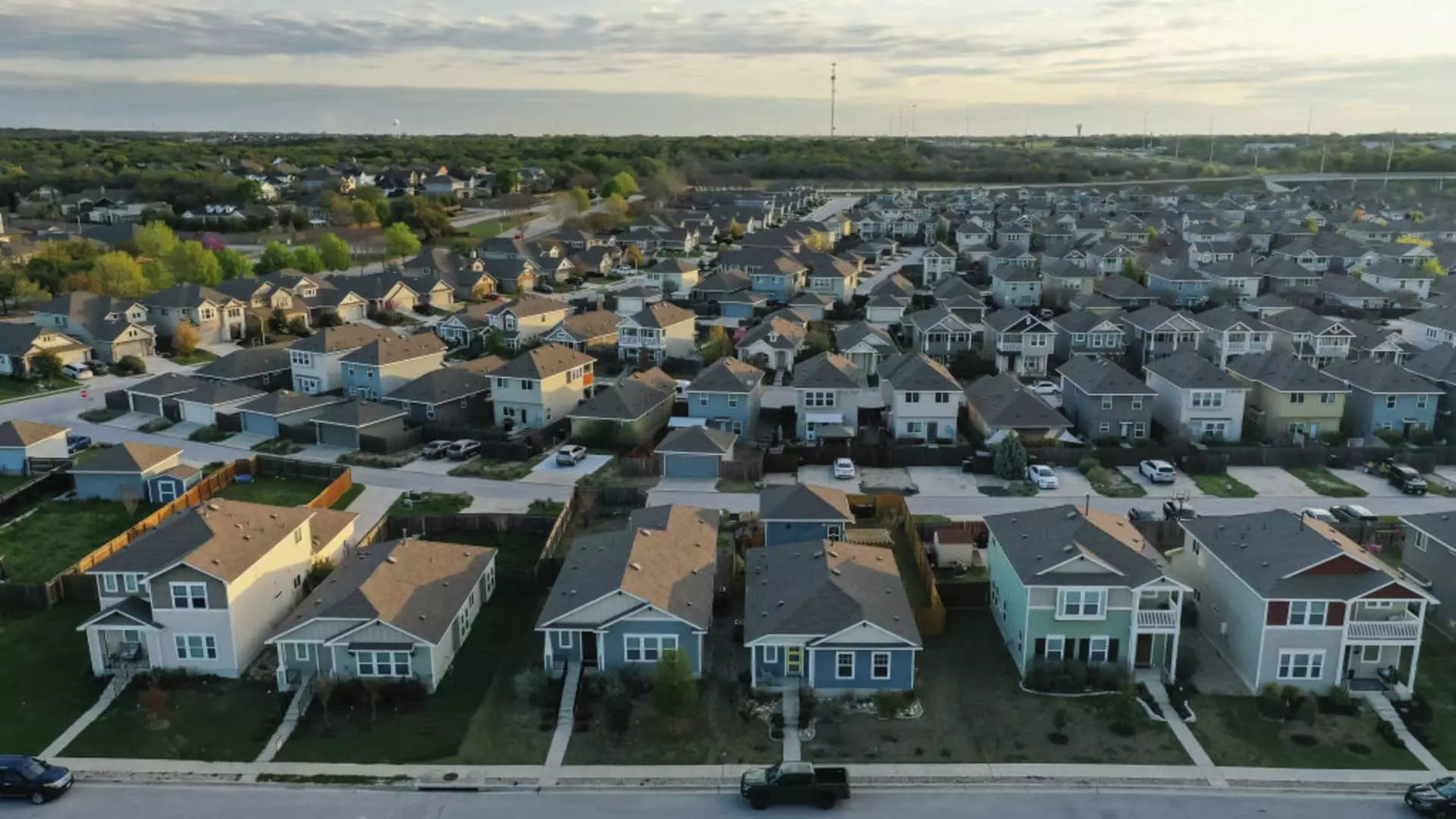In a surprising turn of events, mortgage demand showed an uptick last week, demonstrating resilience even as interest rates continued their upward trajectory for the fourth consecutive week. According to the Mortgage Bankers Association’s seasonally adjusted index, total application volume climbed by 1.7% compared to the previous week. This increase came amid concerns over rising mortgage rates, which saw the average contract interest rate for 30-year fixed-rate mortgages jump to 6.90%, up from 6.86%. Notably, this marks the highest rate since July, raising questions about how long this upward trend can be sustained.
The real estate market is often viewed as a barometer of economic health, and last week’s numbers reflected a mixed bag. Applications for mortgages to purchase homes rose by 2%, although they lagged by 1% compared to the same week last year. Conventional loans and those backed by the Federal Housing Administration (FHA) drove this demand, with FHA applications reporting a significant 7% increase. Joel Kan, an economist at the Mortgage Bankers Association, noted that an increase in available inventory in certain markets is enabling buyers to take advantage of competitive pricing and slightly lower FHA rates. This context suggests that while rates climb, the potential for negotiation may encourage buyers to enter the market.
In contrast to the purchasing segment, refinancing applications also experienced a notable boost, rising 2% week-over-week and up 43% from the previous year. Much of this demand seems to stem from a 10% increase in applications for Veteran Affairs (VA) loans, indicating a vibrant refinancing environment. This divergence in trends suggests that existing homeowners may be capitalizing on the opportunity to refinance at rates that are still appealing relative to historical standards, despite their current increase.
Market Reactions to Global Events
Interestingly, the mortgage rate landscape was impacted by external factors this week. A mixed response to geopolitical uncertainties played a role in causing bond yields to shift. Following the news that the U.S. authorized Ukraine to launch long-range missile strikes against Russia, mortgage rates initially increased before falling due to investor flight to safety. Matthew Graham from Mortgage News Daily pointed out that the response to these geopolitical tensions has been tempered, indicating skepticism among traders regarding imminent nuclear escalation and its potential ripple effects on the market.
As mortgage applications are showing an ability to rise even amidst increasing rates, the vital takeaway is resilience in consumer behavior. Shifts in supply dynamics and ongoing geopolitical challenges will continue to shape the mortgage landscape. Potential homebuyers and refinancing homeowners are urged to stay informed and act strategically based on fluctuating market conditions. The ongoing adjustments in the economy will likely determine how sustainable this rise in mortgage applications will be in the coming weeks.

